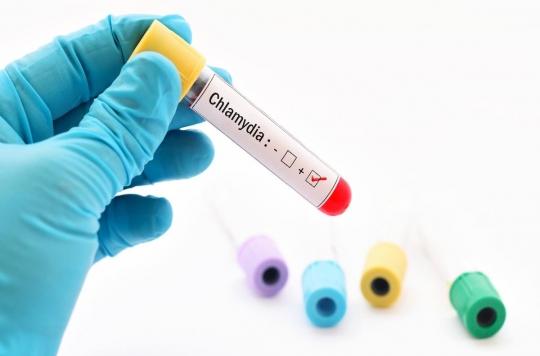Scientists are testing the effectiveness of a vaccine against this common STI. The first results are promising.

Genital chlamydia infections are the most common sexual infections worldwide. To stop the spread of the disease, Danish and British researchers are working on a vaccine. In The Lancet Infectious Diseasesthey publish the encouraging results of their first test.
A vaccine capable of eliciting an immune response
According to the researchers, the vaccine is “safe and capable of eliciting an immune response”. The phase 1 clinical study was carried out on 35 women, aged 19 to 45. Two formulations of the vaccine were successfully tested, all patients had an immune response. No side effects have been identified. One of the preparations was chosen because it was considered more effective: it allows the creation of 5.6 times more antibodies. This trial is a first step towards the development of a vaccination, others will be needed to prove that the immune response makes it possible to avoid infection. “Even if this clinical trial is in its infancy, specifies Toni Darville, co-author, this study gives optimism for the future.”
“Although clinical vaccine testing for chlamydia is in its infancy, this trial suggests optimism for the future.”
First genital #chlamydia #vaccinated enters in-human clinical trial: Comment by Taylor Poston & Toni Darville @TheLancetInfDis https://t.co/iSKGymraef
— The Lancet (@TheLancet) August 13, 2019
A risk of infertility
Often asymptomatic, genital chlamydia infection can cause infertility, but also inflammation of the prostate or testicles, in women, it can be the cause of chronic abdominal pain or even ectopic pregnancy. Infection is caused by bacteria Chlamydiae trachomatis, which is transmitted through unprotected sex. It can be treated with antibiotic treatment for a period of 7 to 15 days depending on the severity of the infection.

.

















